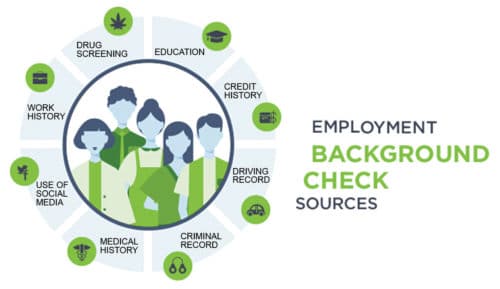Organisations need to realise that redesigning jobs is essential to integrate traditional ones with new-age technologies

With increasing competition, organisations are attempting their best to improve their productivity. To ensure this, one of the extremely important steps is to hire the right employees. While a candidate may seem suitable for the position during the interview, a background check minimises the possible risk associated with the security and reputation of the firm.
As the world is switching to automation technologies in every sector, organisations are increasingly adopting cognitive tools and artificial intelligence (AI)-based systems to construct a new augmented workforce. According to Josh Bersin’s HR technology market report 2019, more than 1400 HR technology vendors are in the market, many focused on using AI, cognitive interfaces, advanced analytics, sentiment analysis and other new technologies designed to make work easier.
Different companies in India, especially the ones in technology, banking and ITES (information technology-enabled service) sectors, have started using AI-based chatbots for proper screening of candidates and acquiring talent.
Gurugram-based startup, AuthBridge is using collated data from digitised court and litigation records to offer such services as instant identity verification, employment background screening, customer screening and so on, to a number of companies including Ola Cabs, Max Life Insurance, Manpower Group and PropTiger. It keeps a strict check on access to stored data to maintain privacy of its users. One of its clients is Mindtree Ltd, an Indian multinational information technology and outsourcing company, which is re-inventing its hiring processes.
Mindtree previously used manual processes for extensive background checks before onboarding candidates—a tedious and time-consuming task. Tasks like interaction with multiple stakeholders required a lot of effort. When calculated, human effort amounted to 7260 hours per year. Performing mundane tasks throughout the year had a negative impact on employee morale, and it was difficult to maintain a check on various processes.
The company chose automation as the answer to increase its work efficiency. There were four major processes that were executed manually. Owing to various challenges encountered, the decision was taken to automate these. For this purpose, 22 chatbots were designed and deployed. These were implemented to work with various applications and perform 25 sub-tasks, such as background check initiation (downloading and sharing), pending documents followup, updating background check tracker, sub-contractors background check and so on. Integration of data from multiple sources became simple and hassle-free.
Later, more than seventy bots were further deployed to ensure further optimisation of processes and to save time.
Implementation of bots resulted in 47 per cent return on investment (ROI). The scalable and responsive processes thus used provided increased operational agility and boosted revenue of the company. Human effort hours per year saved after automation came down to 3441. There was 23 per cent reduction in average time spent in performing background checks.
Optimisation also led to more than 6000 hours of manual effort and coverage of more than 64 tasks. Accuracy is now hundred per cent as there are no human errors and biases. This has been a boon to the company as it witnessed an effective overall growth in its performance and resource utilisation. Going by the result, the number of bots will only increase with time.
Today, Mindtree is implementing automation technologies in almost all its verticals and reaping huge benefits. Many other companies also are doing the same to progress in today’s dynamic business environment. Yet, only a few major companies agree to have extensively used automation across all their divisions.
Organisations need to realise that redesigning jobs is essential to integrate traditional ones with new-age technologies. The focus must be on replacing manual processes that were applied to perform redundant tasks by automation. This promises good ROI at low risk.
It is also necessary for them to understand that automation is complementary to the workforce and not a threat. Automation will create jobs for humans and will allow them to apply their thinking and decision-making skills to value-added jobs.








